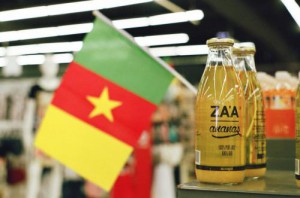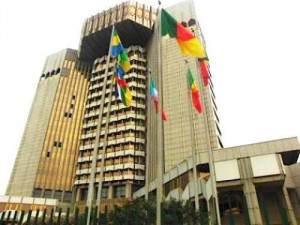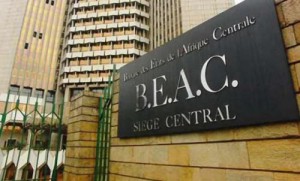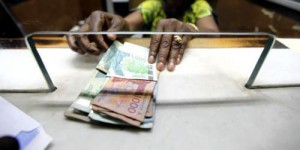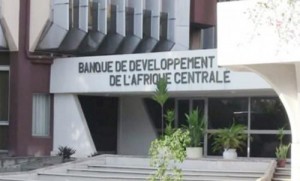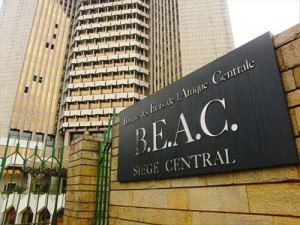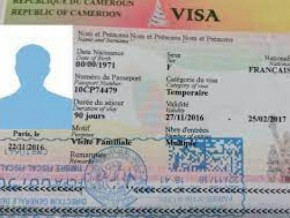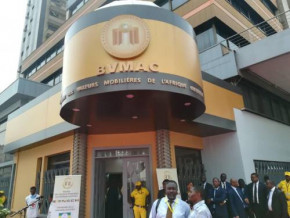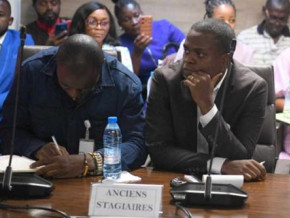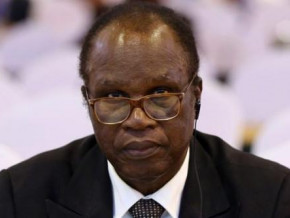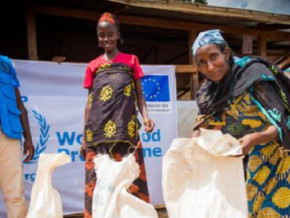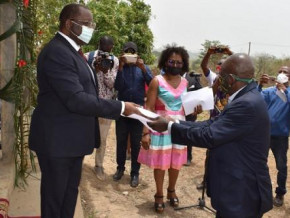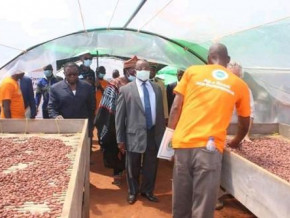
568 products made in Cameroon were eligible for CEMAC’s preferential tariff regime in the last 4 years
On February 14, 2018, seventeen companies operating in Cameroon received certificates which allow them to export 174 products within CEMAC without paying customs duties. These certificates were delivered by Cameroon’s ministry of commerce because those companies were declared eligible to CEMAC’s preferential tariff regime.
At the ministry of commerce, it is said that in the last four years, 568 products manufactured by 71 companies operating in the country were eligible for this regime which grants access to this market of 45 million consumers.
Let’s note that to be eligible for this regime, companies must respect a certain quota during their industrial production. For instance, the product manufactured must be made with at least 40% of local raw materials.
This requirement, coupled with the opportunity that the preferential regime represents for companies operating within CEMAC, explains the race for local raw materials observed with some large companies operating in Cameroon.
BRM
BEAC chooses DMH to conduct the topographical survey of the national headquarters’ site
The Bank of Central African States (BEAC) will build a headquarters for the national directorate in Cameroon. This was revealed by a statement which announced DMH as the group chosen to conduct the topographical survey of the site on which this headquarters will be built.
The contract with DMH follows a national competitive bidding launched by the bank on August 17, 2017. However, the amount of this contract has not yet been disclosed.
Let’s note that so far, BEAC’s national directorate in Cameroon shares the same building with the local representation of IMF in Yaoundé downtown, near the office of the prime minister.
BRM
BEAC chooses WAFA Gestion to invest the funds of CRBC in CEMAC and WAEMU
The Bank of Central African States (BEAC) has chosen WAFA Gestion,which is 66% owned by the Morrocan group Attijariwafa, to invest the financial assets of its retirement fund (CRBC) in CEMAC and WAEMU.
On April 18, 2017, when BEAC issued the bid solicitation, it indicated that the fund had put in place a guarantee supplementary benefit plan for its retired staff and entitled family members.
Created in 1999, CRBC is an integral part of BEAC but, it is autonomously managed. Its resources are entrusted to portfolio management companies for set mandates with WAFA Gestion being the current choice.
S.A
CEMAC: In 2016, Cameroon had the highest rate of bad credits
In 2016, the gross lending of 829 microfinance institutions identified within CEMAC was CFA535.5 billion. The figure is revealed in the report on financial stability in Central Africa that BEAC has just published.
“The highest proportions were distributed by microfinance institutions in Cameroon (75%), in Congo (17%) and Gabon (5.3%)”, the report reveals.
The report also indicates that Cameroon, which hosts 523 microfinance institutions (more than half of the microfinance institutions identified in the community) had the highest rate of bad credits during the period under review.
Indeed, by December 31, 2016, the outstanding loans in these institutions, within CEMAC “were CFA71.1 billion, representing about 13.4% of the gross lending”, they “were concentrated in Cameroon (79%) and in Gabon (13%)”.
“The volume of outstanding loans, declared by financial institutions, does not reflect the actual volume owing to the non-compliance with the accounting and downgrading rules provided by the regulation”, the report revealed further.
Brice R. Mbodiam
Congo to connect to Cameroon and Central Africa via a 550 km optical fiber
This year, in the framework of the Central African Backbone (CAB) project, Congo will deploy 550 km of optical fiber for its interconnection with Cameroon and Central Africa.
This is revealed by members of the steering committee of this project in Congo, at the end of a meeting of this committee on January 31, 2018, in Brazzaville.
The project which is aimed at building an optical fiber interconnection between the six member countries of CEMAC is financed by AfDB. Thanks to this project, central African countries will have access to high-speed internet, and improve the quality as well as the quantity of telecommunication and ICT services offered, at affordable prices.
BRM
BDEAC opens two credit lines with BADEA to support economic development within CEMAC
On January 24, 2018, in Brazzaville, the management board of the Development Bank of Central African States (BDEAC) has reviewed and approved the opening of two credit lines with the Arab Bank for Economic Development in Africa (BADEA) worth $35 million (about CFA20 billion).
According to the management, thanks to the fund obtained, BDEAC will be able to support the projects of SMEs and SMIs within CEMAC, especially those operating in various business sectors such as agriculture, agribusiness, fishing, breeding, industry, and trade with Arab countries.
Let’s note that BDEAC’s new strategic vision defined in the 2017-2022 strategic plan is to concentrate its operational efforts to support member countries’ economic diversification, finance major integration projects and programmes and extend the range of the bank’s development tools aimed to support the private sector’s development, SMEs and SMIs especially.
Sylvain Andzongo
DRC joins six Cemac countries in the fight against money laundering and funding for terrorism
Since 5 September 2017, the Democratic Republic of Congo (DRC) has joined the Action Group against money laundering and funding for terrorism in Central Africa (Gabac), as associate member, as DRC is not part of the Economic and Monetary Community of Central Africa (CEMAC), of which Gabac is a specialised organisation.
During the signature of the related agreement in Brazzaville – Congo, the CEMAC authorities were pleased to register the entry of this new associate member, which will help to strengthen the fight against money laundering and funding for terrorism in the CEMAC community.
Indeed, as DRC “was not under the CEMAC regulations in this subject, many economic and financial criminals were sending their funds there without risking legal proceedings or searches against them”, said a member of the technical committee of Gabac to the Cameroon pro-government daily. The Gabac membership of DRC will thus pull the rug from under the feet of those who practice this.
BRM
Cameroon deploys another contingent of more than 1,000 men to keep peace in the Central African Republic
A new contingent of 1,030 military and police officers joined the United Nations integrated multidimensional stabilization mission in the Central Africa Republic (MINUSCA) on September 9, 2017, official sources revealed.
This is the fourth and largest batch deployed by Cameroon, since the UN launched this mission which was led by Cameroonian Brigadier General Martin Tumenta Chomu, who passed away a few months ago.
It must be emphasized that instability in the Central African Republic impacts Cameroon, its Eastern region especially as it shares a border with the country. Truly, since the crisis broke out in the Central African Republic, insecurity has soared significantly in the Eastern part of Cameroon, due to various abuses committed by former Central African rebels around the border.
BRM
BEAC, central bank of the six CEMAC countries, to construct new building to house national office in Cameroon
The bank of Central African states (Banque des Etats de l’Afrique Centrale - BEAC), central bank of the six CEMAC states (Cameroon, Congo, Gabon, Equatorial Guinea, Chad, Central Africa), intends to construct a new building in Yaoundé, to house the national office in Cameroon, which presently shares the same premises as the local representation of the IMF.
This is indicated in an advisory just published by this central bank, with a view to hiring a firm to conduct the architectural and technical studies, and to build a model for this project. Firms interested by this invitation to express interest in the bid are requested to submit their dossiers at the latest by 27 September 2017, at 12h, at the BEAC headquarters in Yaoundé.
BRM
Alcohol consumption: Cameroonians rank behind Gabonese and Equatorial Guineans in CEMAC zone
Contrary to widespread belief, Cameroonians are not the largest alcohol consumers in Africa. According to a study that has just been published by the World Health Organisation (WHO), a study that calculates the numbers of litres of pure alcohol consumed by year and by inhabitant over the age of 15 years, Cameroon comes in 12th position in Africa, out of 49 countries concerned by the survey.
In the CEMAC zone, Cameroon ranks behind Gabon, which holds the "palme d'or" of alcohol consumption in Africa, with an average of 9.01 litres of pure alcohol (by year and by inhabitant aged over 15 years); ahead of countries such as Nigeria and Rwanda or even South Africa, but equally Equatorial Guinea, another CEMAC zone country ranked 11th, just ahead of Cameroon (see overall ranking below). This ranking obtained on the basis of averages on the entire population, we learn, is substantiated by another, more precise, which is uniquely focused on alcohol drinkers, excluding all abstaining populations. Here again, it is the performance of Chad, a majority Muslim country, which contrasts in the CEMAC zone, with an average annual consumption which peaks at 33.9 litres per inhabitant.
BRM
Consumption of African countries in litres of pure alcohol, by year and inhabitant aged over 15 years (NB: Figures for Mauritania, Libya, Somalia and Namibia are not available).
|
1 |
Gabon |
9.01 |
|
2 |
Nigeria |
8.90 |
|
3 |
Ouganda |
8.33 |
|
4 |
Afrique du Sud |
7.77 |
|
5 |
Rwanda |
7.12 |
|
6 |
Sierra Leone |
6.74 |
|
7 |
Burundi |
6.32 |
|
8 |
Angola |
6.20 |
|
9 |
Tanzanie |
6.20 |
|
10 |
Botswana |
5.98 |
|
11 |
Guinée équatoriale |
5.73 |
|
12 |
Cameroun |
5.64 |
|
13 |
Swaziland |
5.05 |
|
14 |
São Tomé & P. |
4.42 |
|
15 |
Seychelles |
4.33 |
|
16 |
Burkina Faso |
4.29 |
|
17 |
Côte d'Ivoire |
3.99 |
|
18 |
Zimbabwe |
3.85 |
|
19 |
Cap-Vert |
3.25 |
|
20 |
Liberia |
3.07 |
|
21 |
Lesotho |
2.92 |
|
22 |
Zambie |
2.75 |
|
23 |
Maurice |
2.65 |
|
24 |
Gambie |
2.44 |
|
25 |
Congo (Kinshasa) |
2.41 |
|
26 |
Guinée-Bissau |
2.28 |
|
27 |
Ghana |
1.84 |
|
28 |
Congo (Brazzaville) |
1.75 |
|
29 |
Centrafrique |
1.73 |
|
30 |
Kenya |
1.73 |
|
31 |
Soudan |
1.73 |
|
32 |
Malawi |
1.44 |
|
33 |
Tunisie |
1.26 |
|
34 |
Bénin |
1.18 |
|
35 |
Djibouti |
1.13 |
|
36 |
Togo |
1.13 |
|
37 |
Mozambique |
1.10 |
|
38 |
Madagascar |
0.92 |
|
39 |
Éthiopie |
0.69 |
|
40 |
Mali |
0.62 |
|
41 |
Érythrée |
0.58 |
|
42 |
Tchad |
0.46 |
|
43 |
Maroc |
0.45 |
|
44 |
Sénégal |
0.23 |
|
45 |
Égypte |
0.20 |
|
46 |
Guinée |
0.20 |
|
47 |
Comores |
0.14 |
|
48 |
Algérie |
0.11 |
|
49 |
Niger |
0.10 |
Lire aussi:
Mags frontpage
- Most read 7 days
- shared 1 month
- read 1 month


